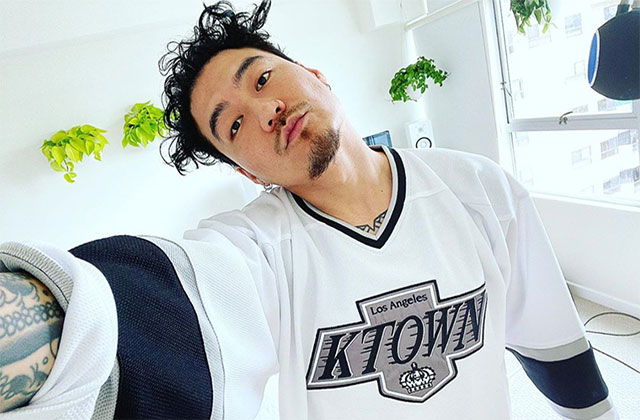What did it mean to be a Korean-American battle rapper in Los Angeles during the 2000s? “There’s something really cool about seeing an Asian American be good at something that everybody wants to be good at,” said “Asian Enough” co-host Frank Shyong to guest Dumbfoundead, during a May 5 podcast interview. “Thank you for being good at something cool,” co-host Jen Yamato echoed.
In the current episode of the Los Angeles Times-produced series, the rapper-turned-actor, who is also known as Jonathan Park, discussed coming up and standing out in hip-hop, battling tired stereotypes and how Black culture taught him to love being Asian even more.
“I’ve always thought it was an advantage for me to be Asian in hip-hop. You stand out,” said Park. “The open mics I would go to, there’d like 100, 200 Black kids in a corner and I’d be the one Asian dude and I knew that at least when I started rapping, people are going to be like, ‘Okay, what is he going to say?’”
See more highlights from the interview below:
On the question of appropriation:
"I do a lot of college shows and it’s always some Asian kid who’s not even in hip-hop culture who’s asking me a question like that. And I’ll be honest when I was young, when I did my first couple college shows, I got asked that from the beginning. I didn’t know what the fuck appropriation was, like I didn’t know what that meant…I was so in the culture, I wasn’t even thinking about appropriation. But to me, it’s like nah. I’m very thoroughly knowledgeable about the culture and the roots of the culture and my part in it, being a guest in it or my contributions."
On who gets to sound Black or White or Asian:
"I’ll be on Twitter and I’ll see so many Asian people attacking the Eddie Wongs or the Awkwafinas and it’s so corny. They’re like young kids, fresh out college and have the fervor of, ‘Oh, I want to be part of something. All of a sudden I’m an ally.’ And they didn’t grow up with any Black friends and all of a sudden they’re a part of this conversation…and then attacking somebody for the way they talk to me is really corny. People grow up in different environments. When someone says someone is talking Black, that sounds racist to me itself. What is a Black person supposed to sound like? It’s the same thing to me when someone says a Black sounds White. That’s the exact same shit when they say an Asian dude is talking Black. That sounds racist."
On paying homage to Black culture:
"Hip-hop taught me to be unapologetically Asian because it was so unapologetically Black. It brought me closer to being Asian…My problem with it a lot of times is these Asian Americans who grew up on hip-hop culture and Black culture, I think we want to attack them so much when we’re trying to pay homage to that community, the hip-hop community, the Black community, for all they’ve done and for all the influence that we’ve actually gotten from them. People want to take that community of Asian Americans and attack that group of Asian Americans, but we need that voice on top of the other voices in the Asian-American community. And a lot of people attacking those voices, they just grew up one certain type of way and can’t accept that side of Asian Americans that grew up that way."
To hear the full episode, listen below:
